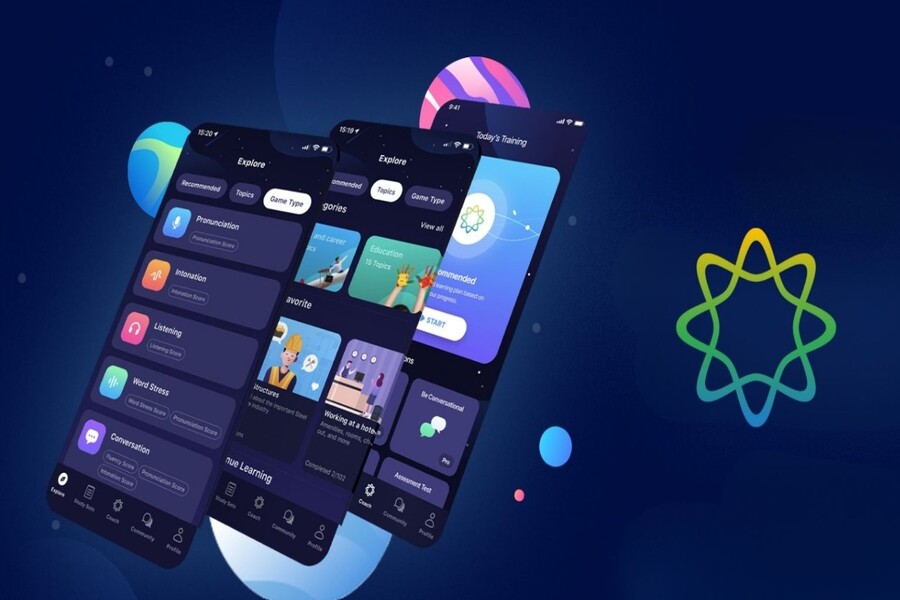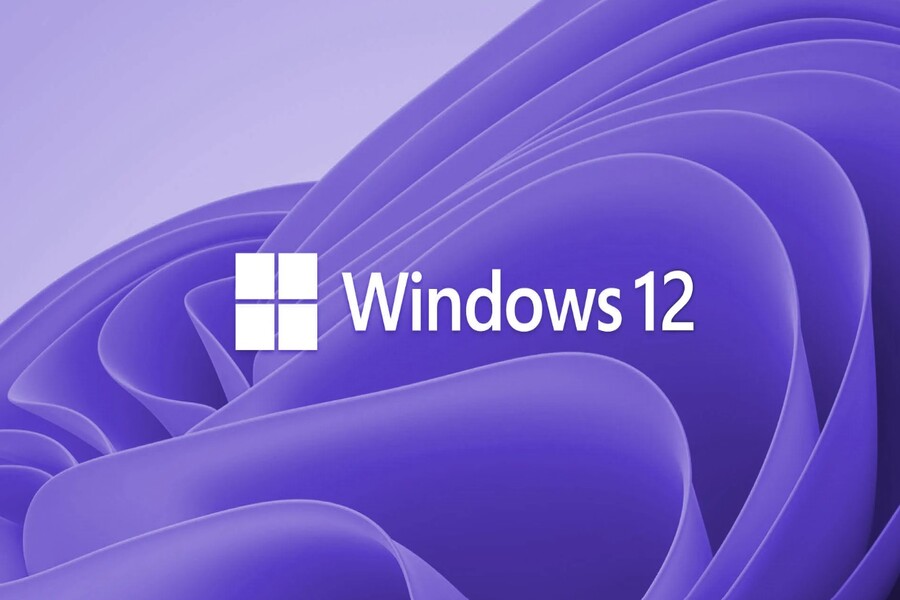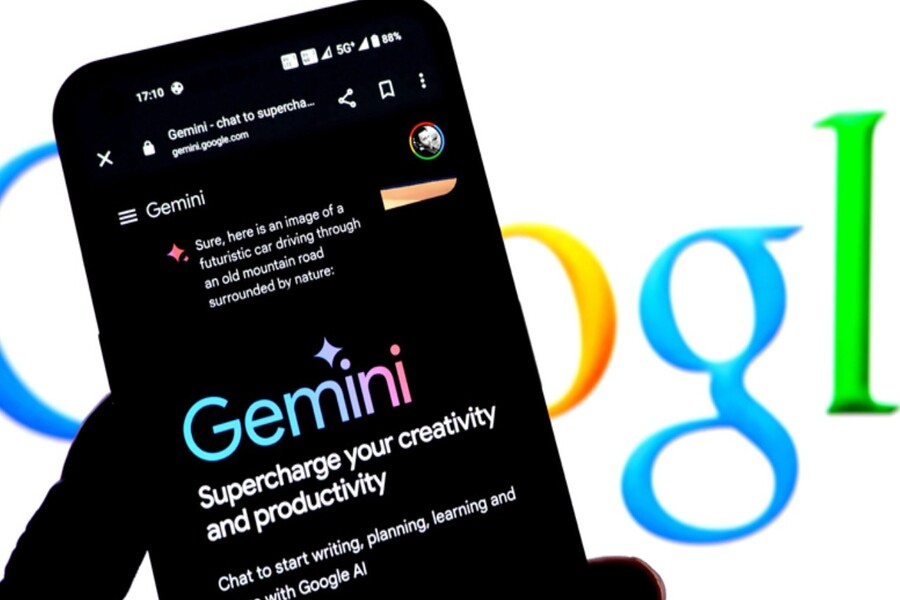Best Selling Products
Perplexity AI Wants to Own Google's "Golden Goose"
Nội dung
Perplexity AI has unexpectedly submitted a $34.5 billion cash offer to acquire Google Chrome, the world's most popular web browser and known as Google's "golden goose".
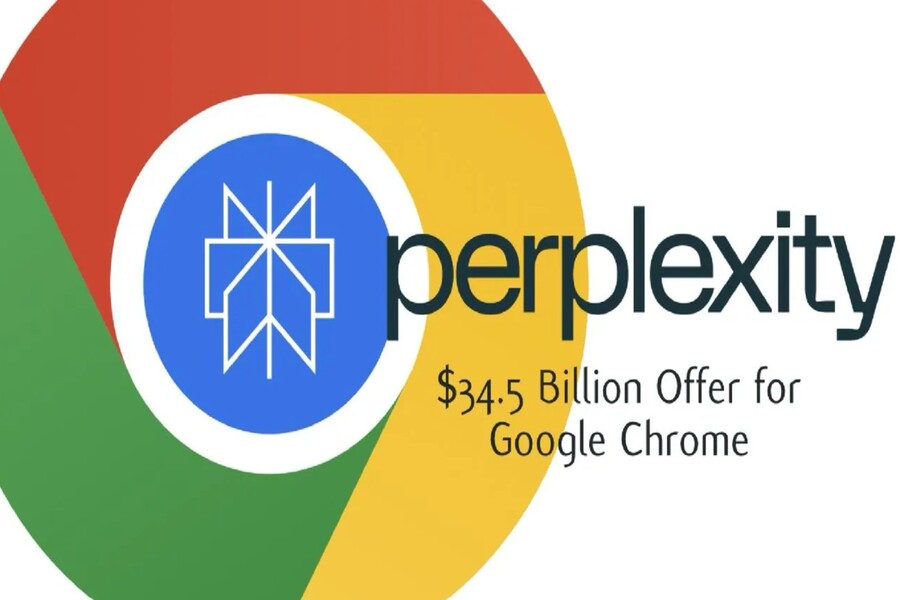
The global technology market is used to sensational deals, investments of tens of billions of dollars, or shocking acquisitions between giants. However, rarely has the community witnessed such a dramatic and surprising scenario as the past few days: Perplexity AI unexpectedly submitted a $34.5 billion cash offer to acquire Google Chrome, the world's most popular web browser and known as Google's "golden goose".
What shocked experts was not only the huge amount of the offer, but also the huge difference in scale between the buyer and the seller. Perplexity AI is currently valued at about $18 billion, which is only a little more than a third of Chrome’s estimated value, which analysts value at $50 billion. In addition, Perplexity’s team only has about 50 employees, a very modest number compared to Google’s powerful workforce. So what made a “tiny” startup dare to directly confront one of the technology giant’s most strategic products?
1. Antitrust lawsuits and pressure on Google
To understand the significance and motivation behind Perplexity AI’s bold offer, it’s important to look back at the legal landscape facing Google. Google’s parent company is currently at the center of one of the largest antitrust lawsuits in the history of the US tech industry. The US Department of Justice (DOJ) and several states have filed a lawsuit accusing Google of abusing its dominant position in the web browser and search engine markets to eliminate competition and consolidate control over user data.
According to the lawsuit, the DOJ claims that Google has used a number of unfair constraints, such as requiring phone manufacturers to install Chrome and Google Search as defaults or entering into exclusive agreements with other internet service providers and browsers to maintain its huge market share. These practices, if found to be anticompetitive by a court, could have serious consequences: Google would be forced to spin off or sell Chrome.
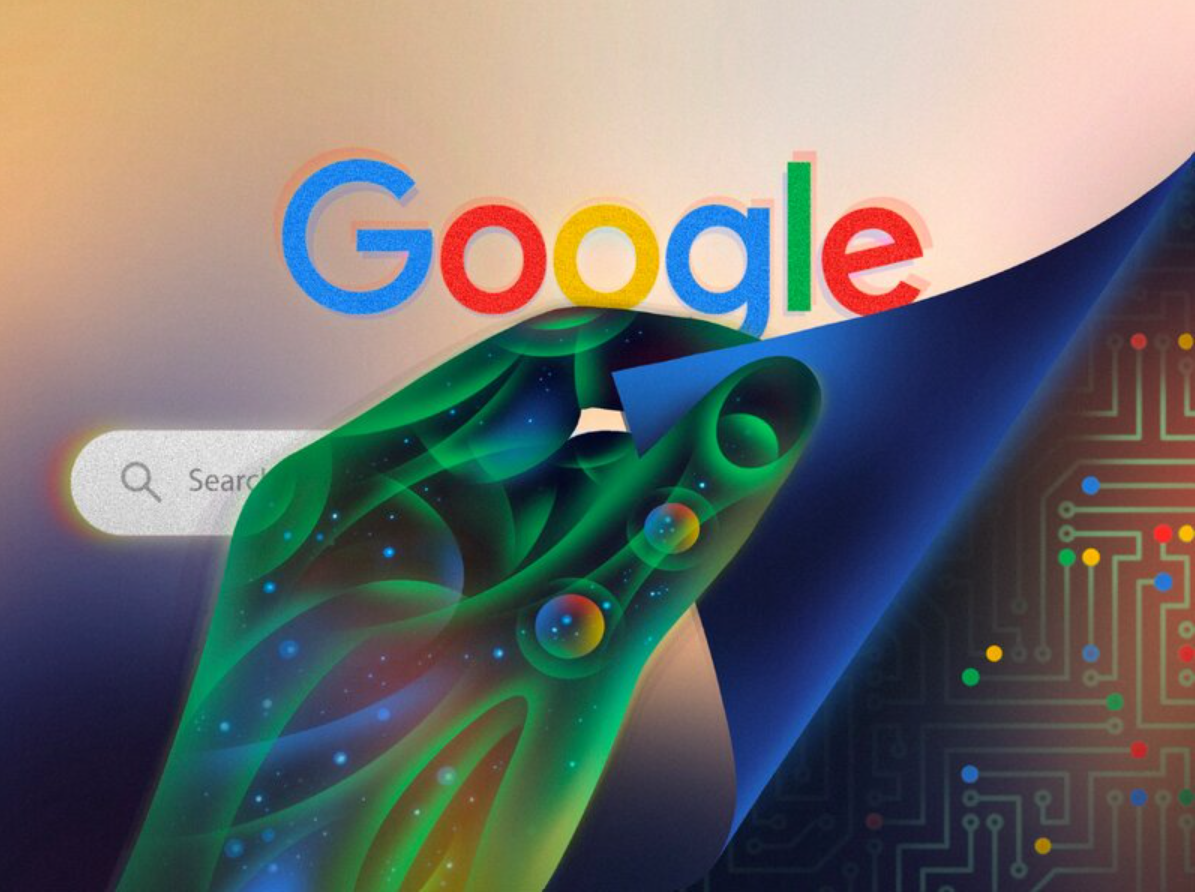
This is a scenario Google has always wanted to avoid. However, there are precedents in US antitrust history, such as the 1984 breakup of AT&T or the pressure on Microsoft to change its Internet Explorer distribution strategy in the late 1990s. So the possibility of a court forcing Google to divest Chrome is no longer unthinkable.
It was in this context that Perplexity AI saw an opportunity. By submitting an offer to acquire Chrome before the judgment was handed down, Perplexity was not simply expressing its intention to participate in the purchase, but also implementing a very clever brand positioning strategy. They became the first and most prominent name to appear as a “Chrome acquisition candidate”, creating a global media effect. In fact, this “first move” gave Perplexity an advantage in both image and negotiation potential if Chrome did have to go to auction.
2. The bold challenger named Perplexity AI
Perplexity AI may be young compared to giants like Google, Microsoft, and Meta, but it has already made a big splash in the tech community. In just three years since its founding, the company has grown rapidly, becoming one of the most highly valued AI startups, with a valuation of $18 billion, an impressive figure considering its workforce of only about 50 people.
Perplexity’s most prominent product is an AI search engine that combines intelligent Q&A, which many experts consider a cross between Google Search and ChatGPT. Not only does Perplexity provide quick answers, it also aims to synthesize information from multiple sources, analyze context, and provide in-depth results. This is the factor that makes them considered a “potential competitor” to both giants Google and OpenAI.
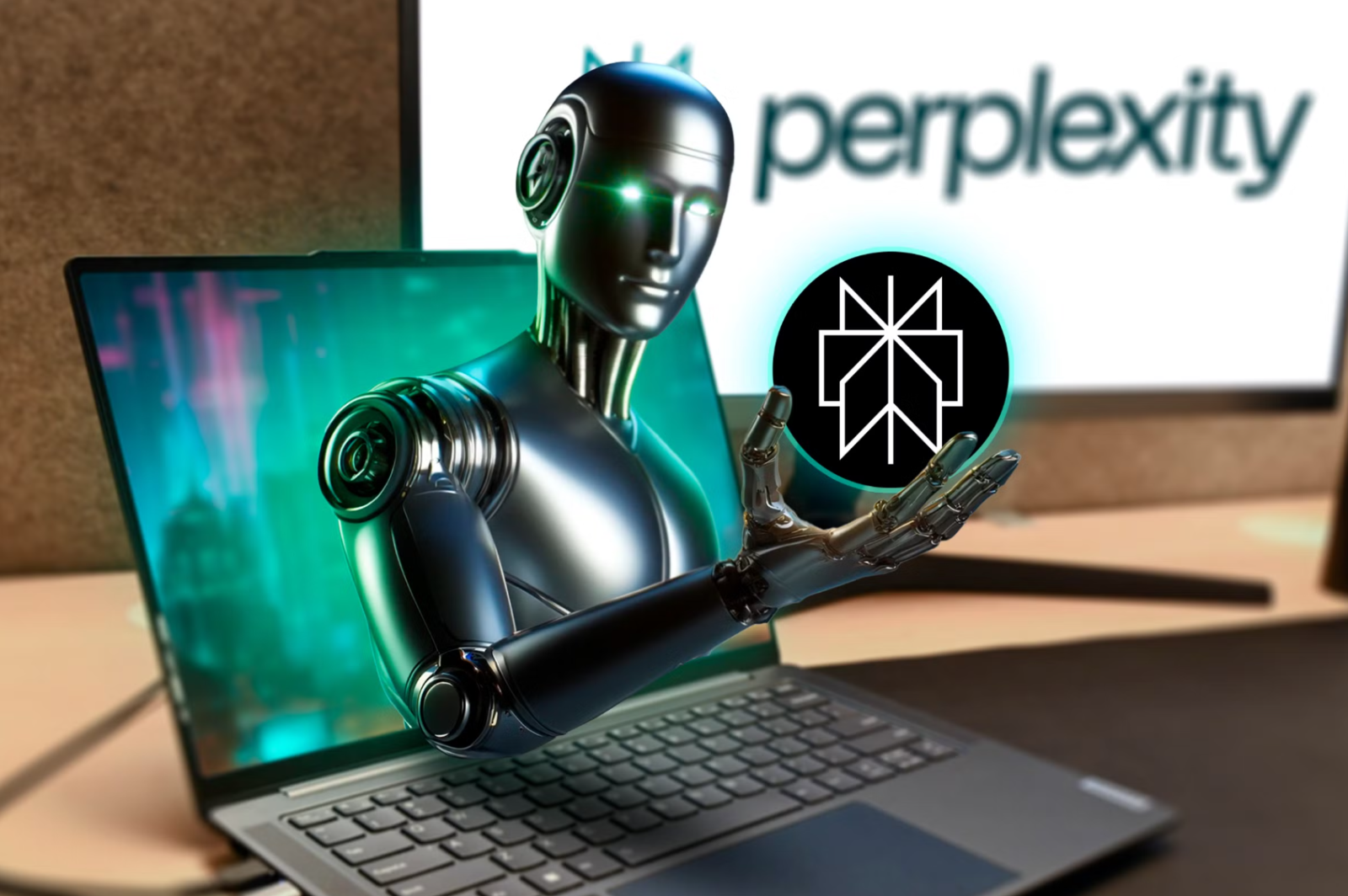
Perplexity’s expansion ambitions extend beyond its AI search engine. Earlier this year, the company made headlines when it attempted to acquire TikTok amid regulatory pressure in the United States. While that deal fell through, the move underscored Perplexity’s strategy: targeting platforms with large user bases and diverse data repositories. This is especially true for Chrome, which is not just a browser, but a gateway to the internet for billions of people.
Perplexity’s boldness lies in its willingness to take on the big boys head-on, even with its modest scale and resources. The fact that it has the guts to “bid” on a strategic Google product shows confidence, or at least a willingness to take a risk. In the world of tech startups, this can mean a giant leap or a painful stumble, but it always attracts attention.
3. The Biggest Reason Behind the Offer
When you look at the big picture, the reason Perplexity craves Chrome is easy to see: data. Chrome now accounts for more than 63% of the global browser market share, which translates to more than 3 billion monthly active users. Each browsing session is a treasure trove of information: which pages users visit, how long they stay, what they search for, how they interact with the content… All of these pieces of data, when aggregated and analyzed, become “golden fuel” for training AI models.
In the era of artificial intelligence, companies with a lot of quality data are the most powerful players. This is also the reason why "big guys" like Google, Meta or Amazon are always looking to expand their product ecosystems to collect more diverse data. If Perplexity owns Chrome, they will not only have a huge data store but also control a global service distribution channel, something that no competitor of Google can do at present.
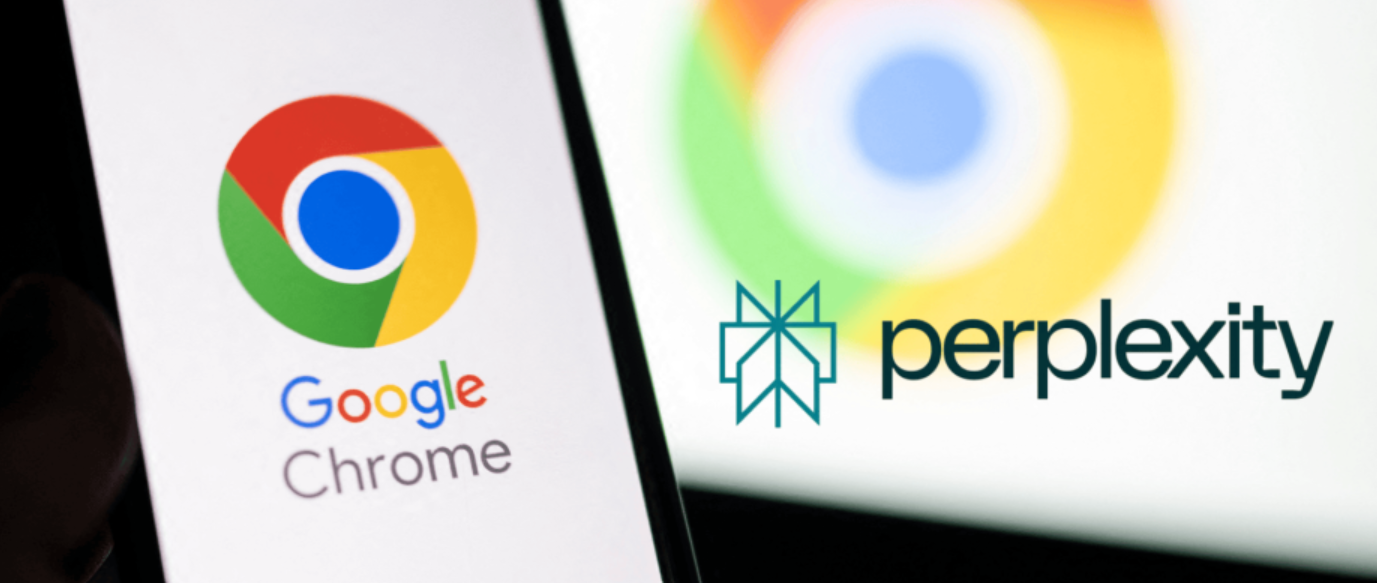
With data from Chrome, Perplexity can integrate AI directly into the browsing experience, personalizing content, improving the accuracy of recommendations, and optimizing ads in unprecedented ways. This will be a strategic advantage that helps them narrow the gap with Google in the fields of search and advertising, which are Alphabet's "money-making machines".
However, mining user data also comes with great risks. In the context of increasingly strict privacy laws in many countries, typically GDPR in Europe or CCPA in California, owning a global data warehouse means a huge legal compliance burden. Perplexity seems to be well aware of this, when in its statement, they emphasized that they will keep the Chromium open source code and continue to let Google Search be the default search engine. This is a move to "appease" public opinion, to reassure users that they will not break what is familiar, and at the same time send a message to lawmakers that they are not seeking to monopolize the platform.
4. Commitment and “anticipation” strategy
In addition to the $34.5 billion acquisition offer, Perplexity also announced that it would invest an additional $3 billion over two years to develop Chrome, improve performance, enhance security, and enhance the user experience. In particular, they affirmed that they would maintain Google Search as the default search engine, a move that both respects user habits and avoids direct confrontation with Google in the search segment in the early stages.
However, analysts say this is likely just a “PR move.” The chances of Google voluntarily selling one of its most strategic products are almost zero, unless there is a court-ordered intervention. In other words, this offer is more of an “early shot,” aimed at creating buzz and putting Perplexity at the center of the story, rather than expecting an immediate deal.
5. Reaction from Alphabet and the tech world
Alphabet has yet to officially respond to Perplexity’s offer, making observers even more curious about Google’s stance amid the intensifying antitrust case. Some experts believe that Google will strongly oppose any move to force it to sell Chrome, because the browser is not only a moneymaker, but also a “gateway” for users to access Google’s entire ecosystem of services.

Meanwhile, the tech community and Internet users are divided in their opinions. Some believe that the emergence of new players like Perplexity can bring healthy competition, promote innovation and improve user rights. On the contrary, many are concerned that a small but ambitious startup owning a huge amount of Chrome data poses many potential security and privacy risks.
6. The Future of Chrome
Most notably, Chrome’s future is not in Google’s hands right now, but depends on how the antitrust case ultimately plays out. If the court forces Alphabet to divest, the door will be wide open for deals like Perplexity’s to materialize. A public auction could then take place, and it’s unlikely that Perplexity would be the only one involved.
On the other hand, if Google wins the lawsuit, Chrome will remain in their hands and Perplexity's $34.5 billion offer will be just another noisy media mark in technology history.
Despite the low odds of the deal succeeding, Perplexity AI has achieved an important goal: putting itself on the global tech map. In an age where public attention is as valuable as profits, the “Chrome shock” has provided Perplexity with a huge amount of free media.
The fact that a small company dares to challenge a giant not only shows a bold spirit, but also reflects a new reality: in the era of data and AI, power comes not only from scale, but also from the ability to create a story strong enough to attract the attention of the whole world.









































